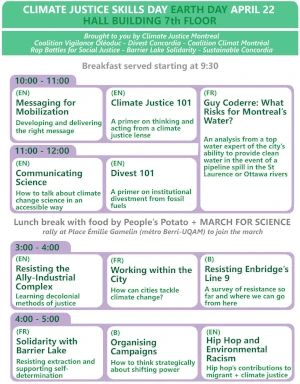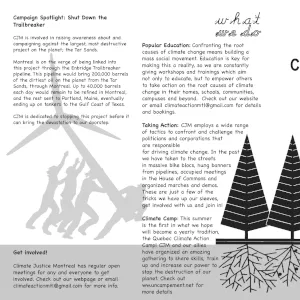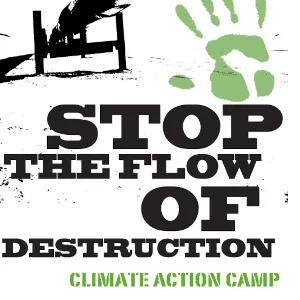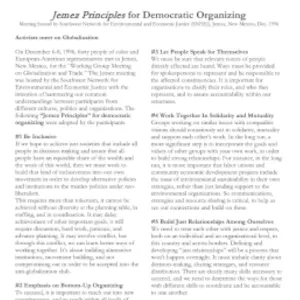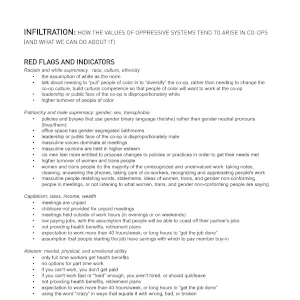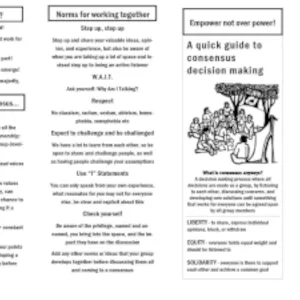Vision & Principles
Climate Justice Montreal is a group pursuing environmental and climate justice through education, mobilization and collective action in solidarity with directly affected communities.
What We Do
Climate Justice Montreal strives to act in solidarity by using anti-oppression and decolonization principles, making decisions by non-hierarchical consensus. We are committed to open, inclusive, participatory and transparent organizing in Tiohtià:ke (Montréal, Quebec).
In our organizing, we see the issues around climate justice as inherently linked to larger questions of capitalism and colonialism. Through our content and the way that we organize, we try to address and highlight these injustices. Our initiatives strive to take direction from and amplify the voices of those most affected by systemic oppression due to race, ethnicity, class, gender, age, sexuality, ability, illness and mental health.
How We Organize
CJM is a non-hierarchical collective that operates by consensus. We make decisions through bi-weekly meetings, and rotate roles and responsibilities to distribute power between members. In experimenting with new campaigns and actions, and continuing on a process of self-education and workshops, we aim to continuously increase our collective capacity to mobilize. Meetings are open to all who support with the organization’s mission and stated principles. For more info on how to get involved, contact us.
In addition to our general meetings which work on climate justice issues related to the tar sands in Canada, CJM has three working groups: education, direct action, and Indigenous solidarity.
History
Climate Justice Montreal developed in 2009 after Power Shift Canada. This was a national gathering of Canadian youth climate change activists in Ottawa, Ontario. After three days of workshops, discussions, and protests outside and inside Parliament, the Montreal contingent decided it was time to take action in Quebec.
After a Climate Camp to stop the construction of a pumping station in Dunham, Quebec, CJM lay dormant until it rose like a phoenix from the ashes of Powershift 2012. Since then, CJM has organized several forums and community events, co-hosted speakers events, and created several actions in and around Montreal.
Principles
Solidarity approach
A commitment to:
- Establishing relationships with communities directly affected by any issues we take on;
- Being transparent about our aims, interests and decision-making process within those relationships;
- Taking direction from affected communities and sharing the burden of their struggle through support work that amplifies their message and empowers affected community within
- Considering and working for the wellbeing of affected communities in general
- Being transparent about the criteria we use to determine who we work with in a given community, and take responsibility for the effects our interventions have
Anti-oppression and decolonization
A commitment to:
- Understanding systemic oppression based on skin colour, ethnicity, class, gender, age, sexuality, ability, illness and mental health.
- Understanding our own role in normalizing this oppression on a day to day level, and taking appropriate action to create equitable relationships
- Understanding our own history and the ways in which we benefit from historical and ongoing land theft
- Confronting said land theft and the systemic devaluing of certain groups of human beings that makes it possible
- Creating inclusive spaces by actively supporting and encouraging equal participation in meetings, roles, tasks etc.
- Proactively sharing knowledge and skills to facilitate sharing of roles
- Noticing who is excluded from the group, and seeking to understand why that is and take appropriate action
Consensus
A commitment to:
- Ensuring that a decision reflects the input of everyone present
- A spirit of openness, collaboration and compromise
- Addressing power relationships within the group, with a view to equalize them
- Harnessing the creativity and lived experience of all participants
- Decentralizing and redistributing leadership roles to everyone in the group
